Program IDA-30
- [ 17 - 18 June ]
- [ 19 - 20 June ]
- [ 24 September ]
- [ 31 October ]
- [ 11 November ]
September 24th
Location: Visionen, Campus Valla, Linköping
- 09.00 - 09.15
- Welcome and information
- 09.15 - 10.05
-
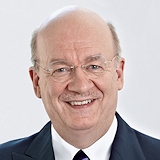 Invited speaker: Professor Wolfgang Wahlster, German Research Center for Artificial Intelligence (DFKI)
Invited speaker: Professor Wolfgang Wahlster, German Research Center for Artificial Intelligence (DFKI)
Presentation title: Industrie 4.0: Active Semantic Product Memories for Smart Factories
[ Abstract & Profile ] [ View slides (PDF) ] - 10.05 - 10.30
- Coffee break
- 10.30 - 11.20
-
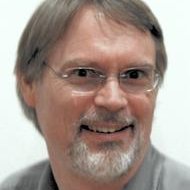 Invited speaker: Dr John Wilkes, Google
Invited speaker: Dr John Wilkes, Google
Presentation title: Cluster management at Google
[ Abstract & Profile ] - 11.20 - 12.10
-
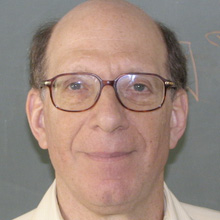 Invited speaker: Professor Andrew S. Tanenbaum, Vrije Universiteit in Amsterdam
Invited speaker: Professor Andrew S. Tanenbaum, Vrije Universiteit in Amsterdam
Presentation title: Where are we going?
[ Abstract & Profile ] - 12.10 - 12.25
- Wilkes Grant announcement
Award ceremony for the students Tova Linder (Information Technology program) and Lisa Nilsson Ax (Computer Science and Engineering program). - 12.25 - 14.00
- Lunch break
- 14.00 - 14.50
-
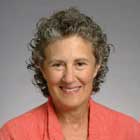 Invited speaker: Professor Barbara Liskov, MIT
Invited speaker: Professor Barbara Liskov, MIT
Presentation title: The power of abstraction
[ Abstract & Profile ] [ View slides (PDF) ] - 14.50 - 15.40
-
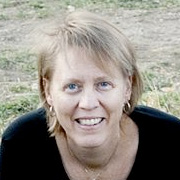 Invited speaker: Professor Tracy Camp, Colorado School of Mines
Invited speaker: Professor Tracy Camp, Colorado School of Mines
Presentation title: Computer Science: Making the World a Better Place
[ Abstract & Profile ] - 15.40 - 16.00
- Coffee break
- 16.00 - 16.50
-
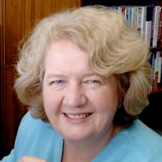 Invited speaker: Professor Judith Bishop, Microsoft Research, Director of Computer Science, Connections Group
Invited speaker: Professor Judith Bishop, Microsoft Research, Director of Computer Science, Connections Group
Presentation title: Devices and Services are the New Hardware and Software: what does that mean for software development?
[ Abstract & Profile ] - 17.00 - 19.00
- Sightseeing for guests
- 19.30 - 22.30
- Dinner for guests
The power of abstraction

Abstraction is at the center of much work in Computer Science. It encompasses finding the right interface for a system as well as finding an effective design for a system implementation. Furthermore, abstraction is the basis for program construction, allowing programs to be built in a modular fashion. This talk will discuss how the abstraction mechanisms we use today came to be, how they are supported in programming languages, and some possible areas for future research.
Biography: Barbara Liskov is an Institute Professor at MIT. She is widely recognized for her work in programming languages, programming methodology, and distributed systems.
Liskov grew up in San Francisco and attended the University of California at Berkeley where she received a BA in Mathematics. She received her PhD from Stanford in Computer Science and joined the faculty at MIT in 1972 in the Electrical Engineering and Computer Science Department.
Liskov's research interests span a wide range of topics within computer science, including distributed systems, replication algorithms to provide fault tolerance, programming methodology, and programming languages. Liskov's work in programming methodology led to the invention of the notion of data abstraction, which is an important underpinning of how software systems are organized today. She and her group designed and implemented CLU, the first programming language to support data abstraction. Her current research projects include Byzantine fault tolerant storage systems, online storage systems that provide confidentiality and integrity for the stored information, techniques for implementing databases on multicore machines to achieve good scalability and performance, and investigation of new directions for programming languages.
Liskov is a member of the National Academy of Engineering, the National Academy of Sciences, the National Inventors Hall of Fame, and the Massachusetts Academy of Sciences. She is a fellow of the American Academy of Arts and Sciences and the Association for Computing Machinery, and a charter fellow of the National Academy of Inventors. She received the ACM Turing Award in 2009, the ACM SIGPLAN Programming Language Achievement Award in 2008, the IEEE Von Neumann medal in 2004, a lifetime achievement award from the Society of Women Engineers in 1996, and in 2003 was named one of the 50 most important women in science by Discover Magazine.
Computer Science: Making the World a Better Place

Professor Tracy Camp
Colorado School of Mines
In this presentation, we will begin by taking a quick look at 30 top innovations over the last 30 years, and we'll clearly see how computer science has made the world a much better place. We'll then investigate how wireless sensor networks are improving today's world in numerous ways, from environmental monitoring to inventory tracking to health applications to surveillance. These networks connect our physical world with our digital world, and provide us with both a richer understanding of our environment and the ability to more accurately control our surroundings. The capability for detailed physical monitoring and adaptation offers tremendous opportunities for almost every science and engineering field. There are, however, many technological hurdles that we must solve in order to continue "instrumenting the world" with wireless ad hoc sensor networks. Finally, I will present the current research directions of my group in this area. Specifically, in conjunction with geophysicists and environmental engineers, we are working to develop intelligent geosystems, in order to enable engineered and natural earth structures and environments to (1) sense their environment and (2) adapt to improve performance. I will discuss the motivation for our SmartGeo program, the progress we have made thus far, and the challenges that still exist to reach our goal of intelligent geosystems.
Biography: Tracy Camp is a Full Professor of Computer Science in the Department of Electrical Engineering and Computer Science at the Colorado School of Mines. She is the Founder and Director of the Toilers, an active ad hoc networks research group. Her current research interests include the credibility of ad hoc network simulation studies and the use of wireless sensor networks in geosystems. Dr. Camp has received over 20 grants from the National Science Foundation, including a prestigious NSF CAREER award. In total, her projects have received over $20 million dollars in external funding. This funding has produced 12 software packages that have been requested from (and shared with) more than 3000 researchers in 86 countries (as of October 2012). Dr. Camp has published over 80 refereed articles and 12 invited articles, and these articles have been cited almost 8,000 times (per Google Scholar) as of August 2013. Dr. Camp is an ACM Fellow, an ACM Distinguished Lecturer, and an IEEE Senior Member. She shares her life with Max (born in 2000), Emma (born in 2003), her husband (Glen), and two cats. The four humans are vegetarians who tremendously enjoy living in the foothills of the Rockies.
Industrie 4.0: Active Semantic Product Memories for Smart Factories

Professor Wolfgang Wahlster
German Research Center for Artificial Intelligence (DFKI)
We argue that active semantic product memories will play a key role in the upcoming fourth industrial revolution based on cyber-physical production systems. Low-cost and compact digital storage, sensors and radio modules make it possible to embed a digital memory into a product for recording all relevant events throughout the entire lifecycle of the artifact. By capturing and interpreting ambient conditions and user actions, such computationally enhanced products have a data shadow and are able to perceive and control their environment, to analyze their observations and to communicate with other smart objects and human users about their lifelog data. Cyber-physical systems and the Internet of Things lead to a disruptive change in the production architecture: the workpiece navigates through a highly instrumented smart factory and tries to find the production services that it needs in order to meet its individual product specifications stored on the product memory. In contrast to the classical centralized production planning and manufacturing execution systems, this leads to decentralized production logic, where the emerging product with its object memory is not only a central information container, but also an observer, a negotiator and an agent in the production process. A semantic service architecture based on a production ontology and ubiquitous microweb servers realizes intelligent match¬making processed between emerging products and production tools. We illustrate this revolutionary production architecture with examples from DFKI's fully operational Smart Factory. We show that AI technologies such as semantic web services, multiagent systems, Big Data analytics, and intelligent multimodal user interfaces are key drivers of the fourth industrial revolution. Industrie 4.0 is funding scheme of the German government with a volume of more than 400 Million Euro.
Biography: Wolfgang Wahlster is the Director and CEO of the German Research Center for Artificial Intelligence (DFKI) and a Professor of Computer Science at Saarland University. He has published more than 200 technical papers and 10 books on user modeling, spoken dialog systems, mobile and multimodal user interfaces, instrumented environments, the semantic web, as well as the internet of things and services. He is an AAAI Fellow, an ECCAI Fellow, and a GI Fellow. In 1998, he has been awarded the degree of Doctor Honoris Causa by the Institute of Technology at Linköping University. In 2001, the President of Germany presented the German Future Prize to Professor Wahlster for his work on intelligent user interfaces, the highest personal scientific award in Germany. He was elected Foreign Member of the Royal Swedish Nobel Prize Academy of Sciences in Stockholm and Full Member of the German National Academy of Sciences Leopoldina that was founded in 1652. He has been awarded the Federal Cross of Merit, First Class of Germany. Prof. Wahlster has also been appointed member of the Research Union "Business - Science" as Chief Scientific Advisor for ICT research of the German government. He is a member of the Executive Steering Board of the EIT ICT Labs and serves on the Executive Board of the International Computer Science Institute at UC Berkeley. He is the editor of Springer's LNAI series and on the editorial board of various top international CS journals. In 2013, Wolfgang Wahlster received the IJCAI DSA award for his substantial contributions, as well as his extensive service to the field of Artificial Intelligence throughout his career.
Where are we going?

Professor Andrew S. Tanenbaum
Vrije Universiteit in Amsterdam
The world of computers has moved at an incredible pace during the past 30 years. In 1983, the computer world was dominated by the IBM System/370 mainframes, the smallest model of which (the 135) had 96 KB of RAM and cost $475,000. But if you didn't have that kind of money, you could get a VAX 11/780 minicomputer with 1 MB for a mere $120,000. That year also marked the introduction of the IBM PC/XT, which ran MS-DOS from a revolutionary 10-MB hard disk. A high-speed Hayes modem ran at 1200 bps but it cost $1199. That didn't matter so much, however, because the first graphical browser, Mosaic, wouldn't be released for another decade. By way of comparison, an iPad is about 500 times faster than the System 370/135, has 10,000 times more RAM, and costs about 1000x less.
But this talk isn't about the past 30 years. It is about the next 30 years.
Biography: Andrew S. Tanenbaum was born in New York City and raised in White Plains, NY. He has an S. B. from M.I.T. and a Ph.D. from the University of California at Berkeley. He is currently a Professor of Computer Science at the Vrije Universiteit in Amsterdam.
Prof. Tanenbaum is the principal designer of MINIX, the direct ancestor to Linux. In addition, Tanenbaum is the author or coauthor of five books, which together have been translated in more than 20 languages. All in all, there are over 140 editions, as shown on http://www.cs.vu.nl/~ast/book_covers/.
In 2004, Tanenbaum became an Academy Professor, which carried with it a 5-year grant totalling 1 million euro to do research on reliable operating systems. His university matched this amount. In 2008, he received a prestigious European Research Council grant of 2.5 million euro to do continue this research.
Tanenbaum is a Fellow of the ACM, a Fellow of the IEEE, and a member of the Netherlands Royal Academy of Arts and Sciences. In 1994 he was the recipient of the ACM Karl V. Karlstrom Outstanding Educator Award. In 1997 he won the ACM SIGCSE Award for Outstanding Contributions to Computer Science. In 2007 he won the IEEE James H. Mulligan, Jr., Education Medal. He has two honorary doctorates.
Cluster management at Google

Dr John Wilkes
Google
Cluster management is the term that Google uses to describe how we control the computing infrastructure in our datacenters that supports almost all of our external services. It includes allocating resources to different applications on our fleet of computers, looking after software installations and hardware, monitoring, and many other things. My goal is to present an overview of some of these systems, introduce Omega, the new cluster-manager tool we are building, and present some of the challenges that we're facing along the way. Many of these challenges represent research opportunities, so I'll spend the majority of the time discussing those.
Biography: John Wilkes has been at Google since 2008, where he is working on cluster management and infrastructure services. Before that, he spent a long time at HP Labs, becoming an HP and ACM Fellow in 2002. He is interested in far too many aspects of distributed systems, but a recurring theme has been technologies that allow systems to manage themselves. In his spare time he continues, stubbornly, trying to learn how to blow glass.
Devices and Services are the New Hardware and Software: what does that mean for software development?

Dr Judith Bishop
Microsoft Research, Director of Computer Science, Connections Group
Over the past decade, devices such as phones, tablets, entertainment systems and sensor gadgets have moved completely into the computer ecosphere. At the same time, software, both new and old, has become available on all of these diverse platforms as well as traditional PCs and servers. What does this mean for software development at all levels - requirements, engineering, testing, languages? Having been involved in some recent projects that seek to create multiplatform software, I'll share some of the successes and challenges, and point to directions for the future. Our work makes extensive use of browsers as "middleware" on which to host software - which has implications for the development languages. It relies heavily on API design for interfaces to services - which disrupts the usual flow of software engineering practice. And we engage not so much in community development anymore, but in community testing via social media. Examples are TryF#, TouchDevelop and the recently released CodeHunt. Mention will also be made of systems that engage scientists in using computers and the cloud to best advantage.
Biography: Judith Bishop is Director of Computer Science at Microsoft Research, based in Redmond, USA. Her role is to create strong links between Microsoft's research groups and universities globally, through encouraging projects, supporting conferences and engaging directly in research. Her expertise is in programming languages and distributed systems, with a strong practical bias and an interest in compilers and design patterns. She initiated the Software Innovation Foundation (SEIF) which supports researchers worldwide in engaging with Microsoft Research. She led a team that pioneered a new way of running programs in browsers (especially F#). Her main work now is in mobile and touch programming, with TouchDevelop.
Judith received her PhD from the University of Southampton and has a distinguished background in academia, having been a professor at the Universities of Witwatersrand and Pretoria, with visiting positions in the UK, Germany, Canada, Italy and the USA. She has over 100 publications including 15 books on programming languages that are available in six languages and read worldwide. She has presented many keynotes, tutorials and special lectures and has served on international editorial, program and review boards including the Swedish Vetenskapradet. She is currently an Honorary Professor at the University of Cape Town. Judith has received numerous awards and distinctions, including Outstanding Woman Scientist of the Year in South Africa, 2005. She serves the community through the ACM and IFIP and is a member of IFIP WG.4.
Page responsible: Webmaster
Last updated: 2013-11-01

